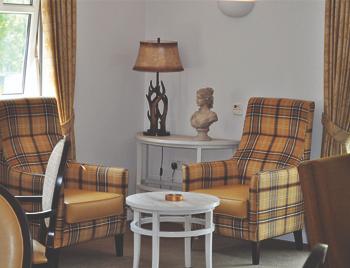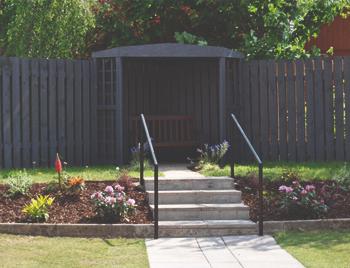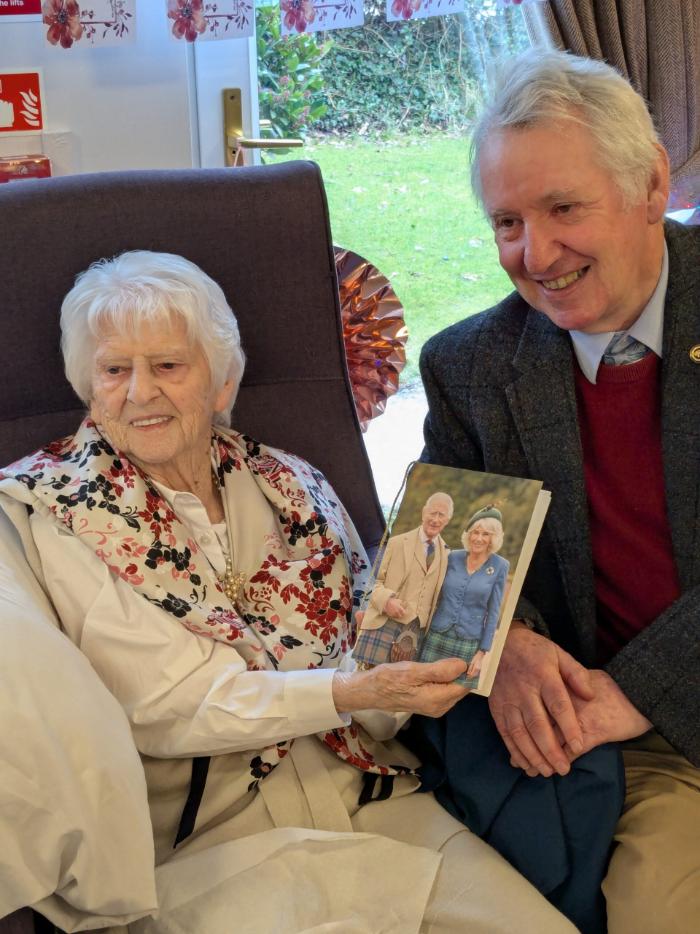How Much Do Care Homes Cost?

Currently, in England, Wales and Scotland, there is a great demand for care homes for the elderly and with this demand on the rise, so are the costs. Across the UK, there are an array of care homes that offer different levels of care and amenities which is making it rather difficult for care seekers and their families to work out costs.
The care costs in the UK are amongst the highest in Europe and in this blog, we will look into what these fees cover, discuss the different levels of care that is available for care seekers and what kind of financial support is available to them.
Care Home Costs in the UK
Each care home will structure its fees differently for the care that is needed as well as the amenities that they offer. Generally, nursing homes will be more expensive due to the higher levels of support required. Another factor to consider when looking into care homes is the location. The care home's location will massively affect its cost as homes in more central locations will cost more than care homes situated in rural areas. Amenities being provided by the care home will also affect the care home fees and some care homes will make additional charges to its residents.
Most care home fees in the UK will cover accommodation costs, meals and care services on a weekly or monthly basis. However, some care homes do adopt an all-inclusive way of living. Supplementary services such as visits to the hair salon, local outings and use of recreational facilities are typically excluded and additional charges will be applied. However, some care homes do adopt an all-inclusive way of living where most of these additional services are included in the fees.
The person who requires care is normally expected to pay for the care home fees but in some cases, individuals in need are able to get financial support depending on certain circumstances.

Average Care Home Fees
The type of care that is required plays a large role in determining the average fees for care homes. On a weekly basis, the cost of care in a residential care home starts around £600, whereas nursing homes incur a higher average expense of nearly £800 per week. Given the heightened level of support, nursing home fees are generally set at a much higher cost.
It's important to bear in mind that these figures can vary based on the location of the care home. Those residing in London should anticipate higher care costs compared to individuals living in the North of the UK or in even Northern Ireland.
Conducting thorough research into various care homes within your preferred location is essential. By doing research and comparing homes, you are able to work out the average care home fees in that area and what amenities that home can offer. It is important to tour each home that you are considering, during these tours you can raise any concerns or questions you might have about the home and the fees.
Residential Care Costs
Residential care is well-suited for individuals who can manage most aspects of daily life independently but require modest support from a registered nurse for tasks like mobility, dressing and personal hygiene. Residential care is normally the cheapest option for care seekers as specialist care is not required as much compared to dementia care or nursing care.
Much like nursing homes, residential care typically involves a fixed fee structure, with any supplementary services will carry an additional cost. However, accommodation, meals and care costs are all included in the primary fee.
Dementia Care Home Fees
Dementia care is a specialised service that caters to the specific needs of the individual using this care service. In the UK, dementia care cases are rapidly growing, with current figures of people living with the condition estimating around 944,000 in the UK alone.
Dedicated dementia care teams undergo regular training to stay up to date with the latest research, technology and practices in the field. These teams also curate dementia-friendly activities and therapies tailored to residents, aiming to mitigate the specific symptoms associated with this condition.
Respite Care Costs
Respite care provides individuals who are experiencing an illness or recovering from surgery the help they need or helps caregivers with short-term relive from their caregiving duties.
In order to determine the most fitting and customised approach to care for those in need of respite care, the care home's management carries out a comprehensive assessment of the care seekers' requirements. This assessment will also help give the care seeker a better idea of costs and their recommended length of stay.
What is included in the care home fees?
The expenses associated with care homes will have slight variations for each individual, due to factors such as the range of services needed, the care home or nursing home's location and the amenities offered to residents. Generally, these charges encompass personal care necessities, accommodation and regular meals.
When looking into a Residential Care Home in Benderloch, it is really important to speak to the home manager to see if there are any additional charges that you should be made aware of, how they structure their fees, if payment for the care costs is weekly or monthly and then compare these findings with other care home options.
Some care homes adopt an all-inclusive model, encompassing all services, amenities and extra activities within the overall package.
All-Inclusive Care Homes
An all-inclusive care home is when all costs, services and amenities are incorporated into the weekly fee. These care homes typically offer four primary types of care: nursing care, residential care, dementia care and respite care. While the cost may vary depending on the specific home, an all-inclusive living arrangement tends to be pricier than a standard care home or nursing home due to the comprehensive coverage of expenses. However, the convenience and all-encompassing nature of this approach makes it an exceedingly popular choice among care seekers.
Due to the challenges caused by rising living costs, the reassurance of escaping unexpected expenses becomes comforting for both care seekers and their families. Opting for an all-inclusive approach means there is a single, inclusive fee that covers physical and mental well-being, accommodation and round-the-clock support. As well as the care seeker having complete access to a variety of amenities.
By visiting various different care home and nursing home options and making thoughtful comparisons, you can ensure that your decision aligns with the requirements and preferences of the person who is looking to move into a care home or nursing home.

Paying for Care Home Costs
In the UK, care home fees are typically covered by the care seeker or their family, if they are able to do so. However, not everyone finds themselves lucky enough to be in a financial position to do so. Individuals who require full-time support but lack the financial resources to meet care home costs might be eligible for assistance from the local authority or NHS-funded care known as Complex Clinical Care in Scotland. To determine eligibility, an individual must undergo a financial assessment, involving the use of a care costs calculator.
This assessment, which is known as a mean test, evaluates factors such as savings, assets, private and state pensions and personal expenses allowance and determines if someone is able to pay for their own care or if they meet the necessary criteria to be offered financial support.
For those capable of independently covering their care costs, seeking advice from a financial advisor will always be advised. This ensures that they can manage care home expenses throughout their stay or consider alternative options such as equity release or a deferred payment agreement if needed.
Using Financial Support Services
Based on your individual circumstances, you may be eligible for financial assistance from the local authority. This involves the local council covering either the entire or a portion of your care costs. A means test will be conducted, assessing your financial situation to determine your eligibility. If qualified, the local council will provide funding to cover a portion of your weekly care expenses.
For individuals requiring intensive 24-hour care or those with complex health conditions, Complex Clinical Care might be an option. This applies exclusively to those with substantial physical and mental needs. Unlike the means test for local authority funding, Complex Clinical Care does not consider your savings and assets. Eligibility is solely determined by whether your care requirements constitute a 'primary health need'.
In cases where NHS or local authority funding isn't available, a deferred payment agreement is another avenue. With this arrangement, the local authority lends you the funds for your care, and you repay the amount once your assets are sold. It's important to note that opting for this approach often incurs additional costs in the form of interest.
It is important to keep in mind that not all care homes accept local authority funding and securing funding from local authorities is not guaranteed. When exploring potential care homes, it's essential to enquire whether they accept funding for care expenses from local authorities. Make sure to clarify this before finalising your decision to move into a particular care home.
What is a 'Self Funder'?
When you are self-funding the expenses of your care, it means that either you or a family member is responsible for covering all the costs. Typically, those who self-fund their care rely on their savings and assets to ensure uninterrupted care payments. It's vital to comprehend that as a self-funder, you bear full responsibility for the care home expenses and won't receive any financial assistance.
Before opting for this approach, it's imperative to speak with a financial advisor. They can conduct a comprehensive financial evaluation and provide a clear picture of your suitability for self-funding, particularly if you fall below the savings threshold. Given that care home costs can vary in structure, it's equally important to directly communicate with the specific care facility to determine their preferred method for residents to handle care payments.
An option that many individuals use is to secure funding through your local authority. In such cases, if you lack the means to independently cover the care home fees, the local council might extend payments to help cover these costs. Eligibility for local authority funding is assessed through a means test, which involves evaluating your assets and income.
If you qualify for assistance from the local authority, they will undertake the responsibility of paying your fees on a weekly basis. Nevertheless, there are instances when the amount provided by the local authority may not fully cover the entirety of your care expenses, necessitating your contribution for the remaining balance. Following a means test, the local council will accordingly adjust their allocated budget to ensure that you neither underpay nor overpay.
Care seekers should be aware that local authority support typically covers fundamental expenses such as accommodation, meals and personal care. Additional facilities or services, including local outings and specific personal items, may call for extra payments. These additional costs would be the responsibility of the care seeker or their family.
What is Complex Clinical Care?
Complex Clinical Care is when the NHS helps cover the expenses of care for individuals with a long-term illness or severe health condition.
To be eligible for NHS-funded care, a formal assessment will be conducted by a team of medical experts. This evaluation will look into an individual's personal situation and capabilities, examining their care requirements. If it is concluded that they need ongoing physical and/or mental support, Complex Clinical Care may be granted.



All-inclusive Living in Argyll and Bute
Etive House Care Home is located in a rural village next to Oban on the West Coast of Scotland. We acknowledge that each of our residents is unique and has different needs, and thus, we hold the view that their care must reflect this individuality. Within our purposefully built care home, we take pride in offering tailored round-the-clock Residential Care, Dementia Care, Respite Care and Palliative Care. Our assortment of exceptional amenities, communal feel and scenic surroundings makes our home the perfect place to reside for the older individual. Our team of dedicated staff members, each chosen for their expertise, empathy and unwavering commitment to providing exceptional care, make our residents feel truly safe, respected and loved.
More about Etive House Care Home
If you would like to speak to one of our dedicated team members contact us today, and a member of our team will be delighted to assist you in answering your questions or scheduling a home tour.





